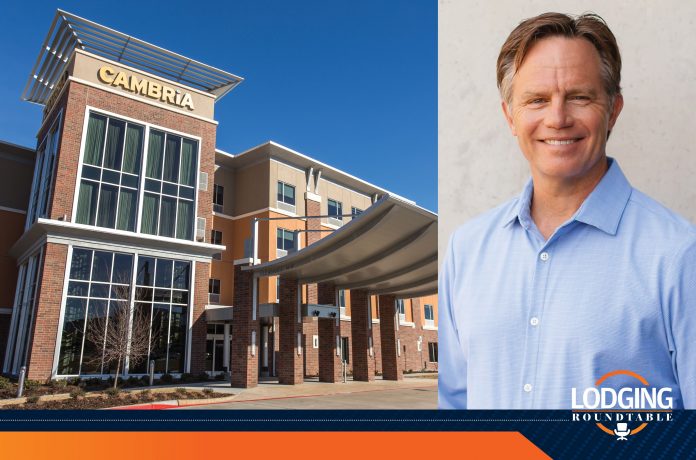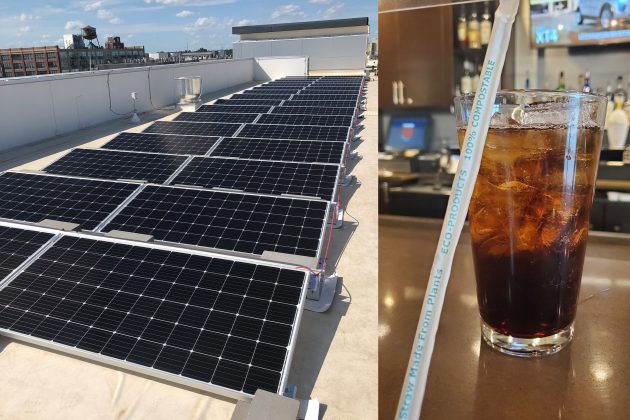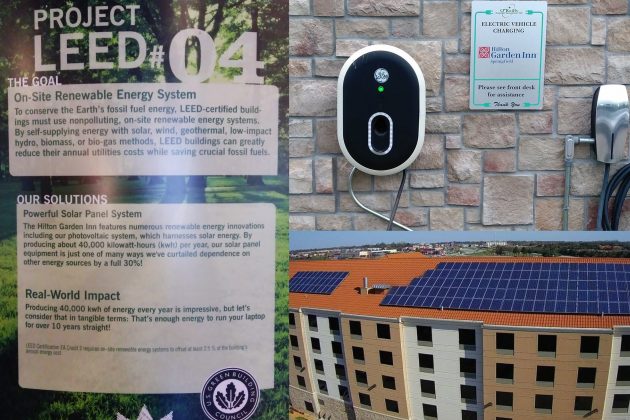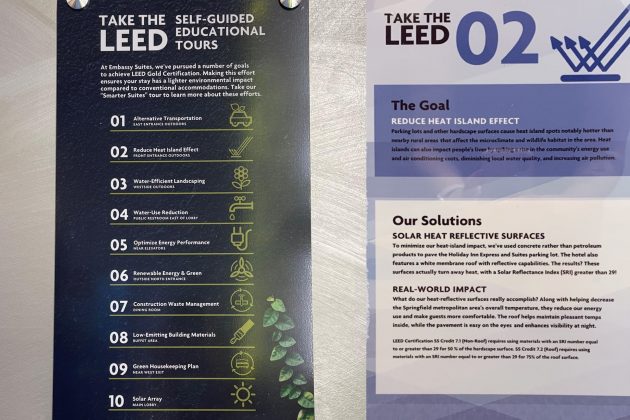LODGING brings you the second installment of our three-part Ownership Series, providing owner perspectives on various hot topics and industry trends. We speak with Tim O’Reilly, chief executive officer of O’Reilly Hospitality Management, LLC, about his approach to sustainability. Look for the third article next month, focusing on trends in the use of soft brands. At The Lodging Conference 2022, our team will conduct a roundtable with the owners participating in the series.

While safety and sanitation have understandably taken the spotlight in recent times, sustainability has always been a priority for the hospitality industry. From water conservation to waste and emission reduction, the industry has and continues to be a leader in environmental stewardship. On one hand, hoteliers are meeting an expectation on the customer side: Staying at a “green” hotel is part of responsible tourism, which travelers are increasingly practicing. And for many group clients, convening at such a property supports their corporate value of environmental responsibility.
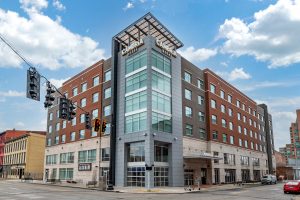
But on the other hand, hoteliers are also setting their own expectations and values by practicing sustainability. A standout example is Tim O’Reilly, chief executive officer of O’Reilly Hospitality Management, LLC. O’Reilly, a Choice Hotels® franchisee who currently owns five Cambria® Hotels and two Ascend® Hotel Collection properties, has a longtime personal connection to environmental values. “My family was always very conscious about environmental issues, and when growing up I was exposed to early sustainability issues,” he recalls. “I strongly believe that climate change is a threat to our planet on a scale that few people seem to grasp. The disappearing glaciers and polar ice caps, along with all of the devastating weather events such as fires, floods, etc., that are caused by a warming planet are going to be difficult to combat if we don’t curb our appetite for carbon in the very near future. Our focus on building energy-efficient buildings, adding solar panels when possible, etc., is the least we can do to help mankind.”
O’Reilly’s devotion to this cause is matched by that of his team members. Sustainability is “one of the pillars of our company,” he says. “We have a sustainability program that we implement at different levels at all of the properties in our portfolio.” The program includes a “Green Team” at every property that regularly meets and brainstorms about ways to promote sustainability and reduce costs at the same time, he explains. Following are some of the O’Reilly program’s achievements:
- The Cambria properties in Plano, Omaha, and Louisville are all LEED Silver certified, which signifies a commitment to energy efficiency, water use reduction, low chemical and VOC (volatile organic compound) content, locally sourced materials, and sustainable energy production (i.e., solar panels).
- All properties have a robust recycling and composting program. Food waste is composted and turned into mulch for the landscaping.
- A green housekeeping plan includes the use of natural cleaning agents and processes and avoids the use of most noxious chemicals.
- Use of single-use plastics have been greatly reduced.

Implementing any such companywide program becomes easier when an owner enjoys a great relationship with a franchisor. “We have enjoyed working with the Cambria team because they are flexible, trustworthy, creative in solving problems and development obstacles, and have produced a unique and flourishing presence in the upscale hotel space,” O’Reilly adds.
The State of LEED Certification
LEED Silver certification is perhaps the biggest accomplishment of O’Reilly’s Green Team thus far. The LEED rating system awards points for sustainable practices in the areas of carbon, energy, water, waste, transportation, materials, health, and indoor environmental quality. Based on a verification and review process conducted by Green Building Certification Inc., properties are certified at a level representing the number of points earned: Certified (40-49 points), Silver (50-59 points), Gold (60-79 points), and Platinum (80+ points).
“The LEED program has done an enormous amount of good and really served its purpose,” says O’Reilly. However, the certification has become more challenging to achieve in recent years, he observes. “Whenever we started doing LEED projects about a decade ago, the energy codes were so incredibly inefficient that it was very easy to get LEED certification. And you could focus on issues that have very short payback windows, like HVAC systems. If you went with a moderately high-efficiency HVAC system, you were halfway to LEED, five to 10 years ago. It’s not that way anymore. It’s extremely difficult to be LEED certified at this point because you have to reach an optimal level of efficiency over what the normal energy code is, and that makes it tougher and more expensive. But we still love the program, and we’ll do it wherever we can.”
Of course, the increased stringency of LEED certification also means the achievement carries more weight than it once did. Accordingly, hoteliers do well to promote that achievement and any others in the area of sustainability. O’Reilly’s team deploys a marketing campaign that highlights all of the company’s sustainability commitments, he adds. For example, “we let people know what we’re about with signage inside the restaurants and hotels, and we try to communicate it on our websites.”
Getting Started in Sustainability
While achieving LEED certification is a major step for most properties, there are certainly smaller steps that can be taken toward improving sustainability. Among the “low-hanging fruit” is a green housekeeping program. “There are an enormous amount of really harmful cleaning chemicals that are sold by different vendors. And there isn’t a significant difference [in cost and effectiveness] between some of the harsher chemicals and [cleaning agents] that are biodegradable,” O’Reilly points out. “Sometimes it’s easier to start simple, with a few different programs like a green housekeeping initiative, and maybe a recycling initiative. Try to get those done, and then go from there.”
The Cost Factor
Rising construction costs may dissuade some developers from adding the expense of sustainability measures, but “focusing on sustainability and protecting your bottom line at the same time” is quite viable, O’Reilly maintains. In his experience, a green housekeeping plan, for example, does not incur significant added costs, while solar panels and LED lighting ultimately save money. Indeed, the significant expense of LEED certification is “usually offset by energy efficiency that produces a short payback period of three to five years,” he notes.
Moreover, local or state incentives may be available for conversion to energy- or water-efficient systems. For example, “in high-growth markets where energy is in demand, there are normally incentives which, when combined with the tax credits that can be generated, make the purchase of a solar array very lucrative as an investment,” he says. “The solar companies we work with have robust calculating systems that help us determine the ‘payback period’ based on energy production, local energy costs, as well as various incentives, tax credits, and accelerated depreciation that can be used for hotels.” In another case, his company was able to obtain an incentive that covered nearly the full cost of the installation of water-efficient toilets when renovating a property in Denver, where water is a highly valued commodity.
Lastly, there are some sustainability practices that do incur added cost that cannot be recouped in any direct way, such as using biodegradable packaging for to-go food. But here is where a hotelier’s environmental consciousness is the motivator. “The amount of Styrofoam and plastic that goes out of our restaurant industry and hotel industry on a given day is just enormous. And so we always try to invest in biodegradable materials,” he says.
Caring About People and the Environment
Most professionals who enter the hospitality industry have an affinity for the well-being of others. Ensuring that hotels were safe and sanitized during the pandemic was therefore a natural response by many in the field, as much as it was about following protocols. Similarly, O’Reilly suggests that many hospitality professionals are disposed to care about preserving the environment, which is a way of caring about future generations.
“I have a love and passion for nature, so anything that we can do to support a healthy natural environment is attractive on so many levels, not the least of which is that it serves as a basis for our corporate culture that our team members rally around,” he says. “I think the people who are really good at service are giving, outwardly focused people who uniformly are very focused on sustainability, too. It kind of goes hand in hand with that personality type.” When it comes to establishing a sustainably operated hotel—especially a LEED-certified one—that disposition is a major predictor of success.



